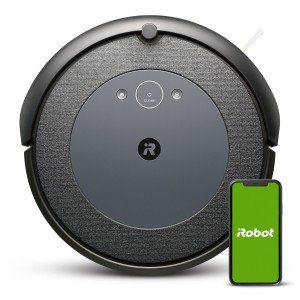The Most Worst Nightmare Concerning Robot Cleaner Be Realized
The Rise of Robot Cleaners in Commercial Spaces
Intro
Over the last few years, advancements in innovation have given rise to automation in numerous sectors, encompassing everything from producing to client service. One noteworthy advancement in this arena is the development of robot cleaners in commercial spaces. These automated cleaning devices have actually transformed the method businesses approach cleanliness and maintenance, providing an option that is not only efficient but also economical. As companies look for to improve their functional performance while preserving high requirements of health, robot cleaners have ended up being an integral part of contemporary commercial environments.
Understanding Robot Cleaners
Robot cleaners are autonomous devices equipped with sensors, cams, and expert system that enable them to navigate and tidy numerous surface areas without human intervention. They are available in different types and functionalities, catering to varied commercial requirements. Here's a summary of the primary types of robot cleaners:
- Autonomous Vacuum Cleaners: These gadgets are developed for effectively vacuuming floorings, particularly in environments such as offices, retail spaces, and storage facilities.
- Scrubbing Robots: These robots are customized for hard surface areas, using scrubbing and cleaning services to take on tough spots and grime.
- Disinfection Robots: Equipped with UV-C light or chemical sprayers, these robots focus on disinfecting areas, substantially minimizing the presence of harmful germs and viruses.
Table 1: Types of Robot Cleaners and Their Features
Type of Robot Cleaner
Primary Function
Suitable Environment
Secret Features
Self-governing Vacuum Cleaner
Floor vacuuming
Offices, Retail Spaces
Sensors for browsing barriers, scheduling
Scrubbing Robot
Tough surface cleaning
Warehouses, Hospitals
Dual-brush system, adjustable settings
Disinfection Robot
Surface disinfection
Healthcare settings
UV-C or electrostatic spraying technology
Benefits of Using Robot Cleaners in Commercial Spaces
The integration of robot cleaners in commercial environments provides a myriad of advantages:
Increased Efficiency
Robot cleaners operate autonomously, permitting them to clean areas at any time of the day or night without the need for human guidance. This efficiency is particularly beneficial for large centers that experience high foot traffic, as these robots can cover more ground in less time.
Constant Cleaning Quality
Robot cleaners are created to carry out consistently, operating on pre-programmed settings tailored to the particular needs of the environment. This ensures a dependable standard of cleanliness throughout the facility.
Cost-Effectiveness
While the preliminary financial investment in robot cleaners may be substantial, the long-term cost savings can be substantial. Robot cleaners lower the need for a large cleaning staff, decrease human mistakes, and can reduce costs related to cleaning supplies.
Boosted Safety
In settings like healthcare facilities and laboratories, maintaining hygiene is crucial. Robot cleaners reduce human contact with potentially hazardous products or locations, therefore boosting general security.
Eco-Friendliness
Lots of contemporary robot cleaners are designed with sustainability in mind. They effectively utilize water and cleaning products, often equipped with settings that lower waste. smart vacuum adds to a greener approach to cleaning in commercial areas.
Secret Considerations Before Implementation
While the benefits are considerable, companies must think about various aspects before purchasing robot cleaners:
Space Design: The layout of the center can affect a robot's effectiveness. Locations with several barriers may require more innovative designs geared up with sophisticated navigation systems.
Maintenance: Although robot cleaners are normally low-maintenance, they do need regular checks to guarantee optimal performance. Having a dedicated professional or service agreement may be necessary.
Software application Updates: The innovation behind robot cleaners progresses rapidly. Keeping the software up to date is important for preserving performance and security.
Integration with Current Systems: Understanding how robot cleaners can be integrated into existing cleaning protocols is essential to maximizing their prospective benefits.
Case Studies: Successful Implementation of Robot Cleaners
Case Study 1: A Large Retail Chain
A large retail chain implemented autonomous vacuum throughout its various shops. The robots permitted cleaning to take place during hours of operation, which substantially decreased labor costs and improved total store tidiness. The chain reported a 25% boost in client complete satisfaction, directly associating it to the boosted shopping environment.
Case Study 2: A Local Hospital
A healthcare facility released disinfection robots to tackle extensive cleaning routines, particularly in waiting areas and operating rooms. These robots successfully mitigated infection risks while allowing cleaning personnel to concentrate on other pushing tasks. The health center noted a significant decline in post-surgical infection rates, validating the effectiveness of robotic disinfection.
FAQs About Robot Cleaners in Commercial Spaces
Q1: Are robot cleaners ideal for all commercial environments?
- A: While robot cleaners are versatile, their suitability might vary based on space design and cleaning requirements. It is important to examine the particular needs and layout of your commercial area.
Q2: How much do robot cleaners cost?
- A: The price of robot cleaners can range widely based upon their functions and abilities. Basic models might start at ₤ 1,000, while innovative designs can cost upwards of ₤ 10,000.
Q3: How frequently do robot cleaners require maintenance?
- A: Robot cleaners normally require minimal upkeep. Routine checks and software application updates are advised, while parts like filters may need replacing based on usage.
Q4: Can robot cleaners work together with human staff?
- A: Yes, robot cleaners are designed to complement human personnel instead of change them. They can take control of regular cleaning tasks, allowing personnel to focus on more complex responsibilities.
The commercial cleaning landscape is seeing a significant transformation through the usage of robot cleaners. These devices match human effort, enhance tidiness, and add to cost savings, making them a worthy financial investment for business wanting to improve their functional effectiveness. As innovation continues to evolve, the capabilities of robot cleaners are likely to expand, further solidifying their function in maintaining cleanliness in commercial spaces. With smart vacuum cleaner to consider of private needs and an ingenious approach, organizations can welcome this innovation to produce a cleaner, more secure, and more efficient workplace.
